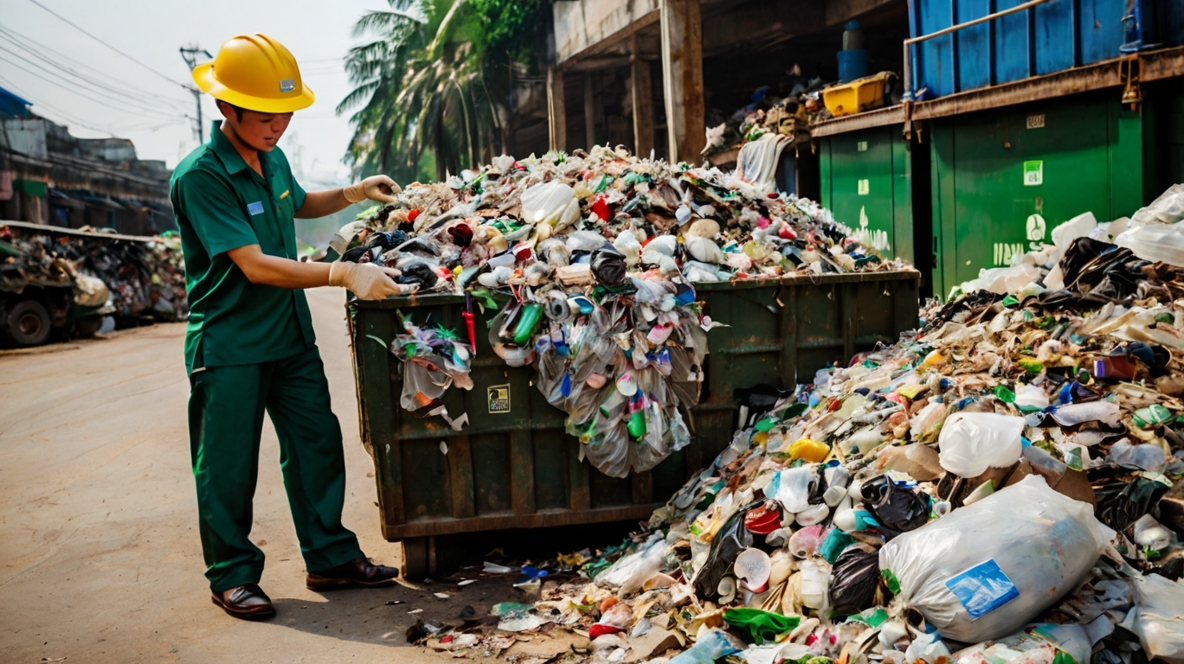Vietnam Waste Management Market 2025: A Sustainable Future Awaits

The waste management market in Vietnam is poised for substantial growth by 2025, driven by increasing environmental awareness, urbanization, and government initiatives. As Vietnam continues to balance rapid economic development with environmental sustainability, waste management has become a pressing concern. This article explores the state of the market through five key themes: growth, challenges, innovation, sustainability, and collaboration.
Growth: A Booming Sector
Vietnam waste management market sector is expanding at an impressive pace, reflecting the country’s economic and population growth. Urban areas, in particular, are witnessing a surge in solid waste production due to rising consumerism and industrial activities. According to recent studies, municipal solid waste generation in Vietnam is expected to reach 54 million tons annually by 2025, up from 35 million tons in 2018. This growing demand creates opportunities for both domestic and international players to invest in modern waste collection, transportation, and treatment technologies.
Challenges: Tackling the Growing Waste Crisis
While the market shows promise, Vietnam faces significant challenges in managing its waste efficiently. Over 70% of waste is still disposed of in landfills, many of which are unsanitary and overburdened. The lack of infrastructure for recycling and treatment, coupled with limited public awareness about waste segregation, exacerbates the issue. Moreover, managing hazardous waste from industries and electronic waste presents additional complexities. Addressing these challenges requires an overhaul of current systems and a shift toward more sustainable practices.
Innovation: The Role of Technology
Technology is a game-changer in Vietnam’s waste management transformation. Companies are exploring innovations such as smart waste bins, AI-powered sorting systems, and waste-to-energy (WTE) solutions. The government is also encouraging the development of advanced recycling facilities and promoting eco-friendly packaging solutions. Initiatives like these not only reduce environmental impact but also generate economic value from waste, aligning with Vietnam’s vision of a circular economy.
Sustainability: A Priority for the Future
Sustainability is at the heart of Vietnam's waste management strategy. The government has set ambitious goals to reduce plastic waste by 75% by 2030 and aims to recycle 50% of waste by 2025. Policies like the National Action Plan on Marine Plastic Litter Management underscore the commitment to tackling pollution. Businesses and communities are increasingly adopting practices like composting organic waste and reducing single-use plastics. These efforts highlight a collective move toward a greener, more sustainable Vietnam.
Collaboration: A Collective Effort
Collaboration among stakeholders is essential to achieving Vietnam’s waste management goals. Public-private partnerships (PPPs) are gaining traction, with multinational companies joining hands with local governments to invest in infrastructure and education. International organizations and NGOs are also playing a vital role in capacity building and advocacy. Ultimately, the success of Vietnam’s waste management market hinges on coordinated efforts from policymakers, businesses, and citizens alike.
Fore More Info : - https://gmiresearch.com/report/vietnam-waste-management-market/
Conclusion
The Vietnam waste management market in 2025 represents both challenges and opportunities. While the growing waste crisis poses significant hurdles, advancements in technology, sustainable practices, and collaborative initiatives paint a hopeful picture for the future. With strong policies and collective action, Vietnam can transform its waste management landscape into a model of environmental stewardship and economic innovation.
By embracing growth, overcoming challenges, fostering innovation, prioritizing sustainability, and enhancing collaboration, Vietnam is well-positioned to turn waste into wealth while protecting its environment for generations to come.
Note: IndiBlogHub features both user-submitted and editorial content. We do not verify third-party contributions. Read our Disclaimer and Privacy Policyfor details.







